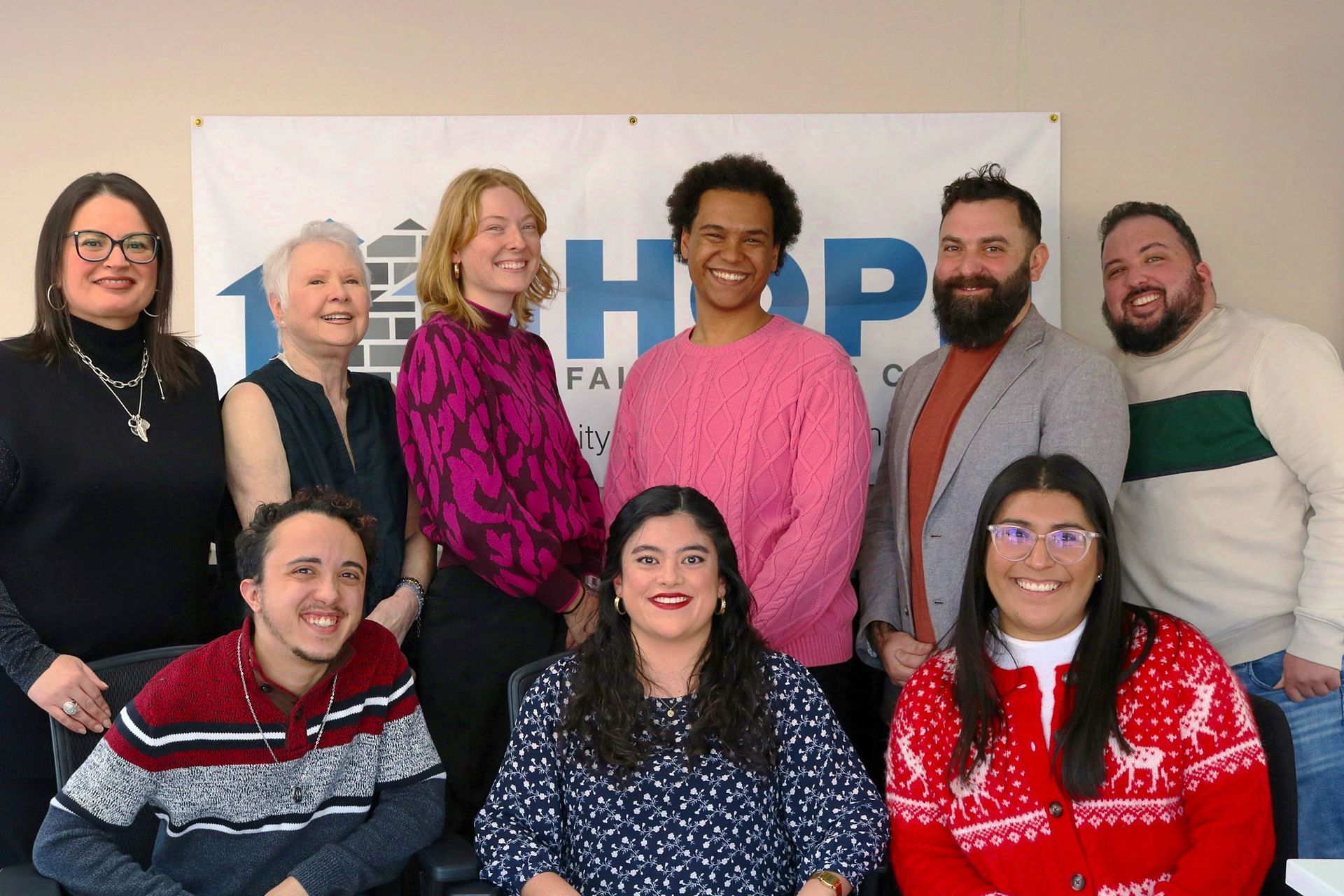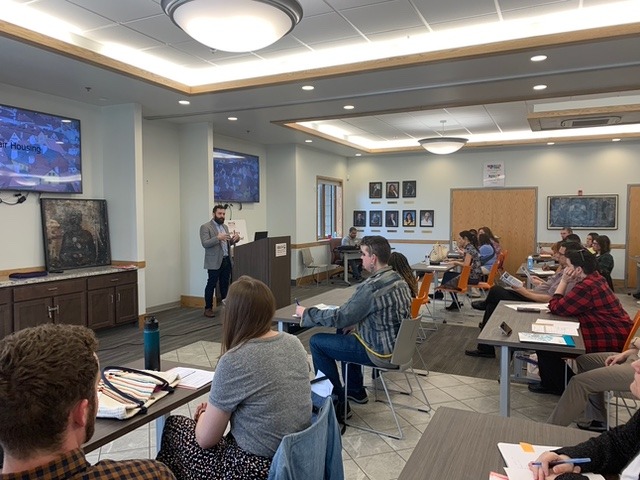Fair housing laws to prevent discrimination “have existed for 55 years, but when we look at the current trends, we don’t see the instances of discrimination going down. That’s because how discrimination manifests continues to evolve; we win one fight and then a new form of housing discrimination emerges, like what we are seeing in the A.I. space,” says Michael Chavarria, Executive Director of HOPE Fair Housing, a civil rights nonprofit based in Wheaton, IL. Like many key civil rights laws, including the Fair Housing Act, their organization is also fifty-five years old. “So that means we haven’t cracked the code. Our team gets really excited when we see fresh ways of tackling these problems.”
The team at HOPE investigates claims of housing discrimination through investigative methods, including using fair housing testers, who pose as housing seekers, then inquire about housing and document their experiences. Through these investigations, HOPE can uncover whether people with certain protected characteristics are given different or less favorable opportunities. If they find evidence of a violation, “we bring forth charges. Then we work through the different channels to have those adjudicated through the court process, through the administrative law process, or similar processes at local levels,” Michael says. Another way the organization investigates discrimination is through a systemic lens, by talking to community groups and other housing advocates and using data analysis to identify trends that evidence illegal discrimination.

HOPE Fair Housing’s staff: (top row, left to right) Josefina Navar, June Bishop, Sasha Mothershead, Blake Mitchell, Michael Chavarria, Cameron Rapata, (bottom row, left to right) Charlie Morvay, Jocelyn Rios, and Isabel Anderson
When asked if there are misconceptions about the work they do, Michael states that over generations of the movement, some outsiders have viewed fair housing as telling people where they should live. “It’s actually the opposite. We don’t tell people where they should or shouldn’t live. Our primary interest is to eliminate barriers to people’s freedom to choose where they live; there should be no hindrance on someone’s ability to choose where they live.”
HOPE Fair Housing and Housing Action Illinois have worked together on many issues over the years. Recently, both organizations were integral partners in the Illinois Coalition for Fair Housing’s successful campaign to pass statewide protections against source of income discrimination for renters–a goal achieved after decades of work along with directly impacted people, Housing Choice Partners, Chicago Area Fair Housing Alliance, Access Living, and other key organizations. We all came together in the wake of increased housing instability during the COVID-19 pandemic to continue a battle organizers and directly impacted people had been fighting for far too long: ensuring that landlords would not turn them away simply because of how they were paying rent. As housing organizations were trying to increase awareness of the unprecedented rental assistance provided through the CARES Act, they found that renters already knew about and were seeking out these resources, but landlords were refusing to accept them.
Sharon Norwood, a former HCV participant helped advocate for the legislation based on her own experience of source-of-income discrimination: “Having statewide source-of-income protections will help people avoid what happened to me. I had to give up my voucher, because I could not find a landlord to rent to me in the community I wanted my family to live in,” Norwood said. “Once I gave up my voucher, I did find a landlord who rented to me, but I was paying a lot more rent than I could afford because of it.”
People who have been directly impacted by source-of-income discrimination directly influenced the Illinois Coalition for Fair Housing’s successful advocacy for the passage of HB 2775 in 2022: a bill that makes source of income a protected class in the Illinois Human Rights act. As of January 1, 2023, renters cannot be turned away from available housing for using Social Security Disability Insurance, Supplemental Security Insurance, veterans benefits, Housing Choice Vouchers, or other legal non-wage income.
After passing these protections, HOPE and Housing Action have collaborated on an education campaign to make sure renters and landlords throughout Illinois understand the new law. “We went to twelve communities in Central and Southern Illinois and hosted workshops where we did general Fair Housing: Know Your Rights presentations,” Michael says. “We did an in-depth source of income update with how the protection would work, and then we also made space for potential victims of discrimination to start the complaint process with HOPE right then and there.”

Michael Chavarria, Executive Director at HOPE Fair Housing, presenting at a Fair Housing Source of Income Training in Champaign County in April 2023
Building a presence in these communities and continuing to show up and connect with people about the harms they experience builds trust with the organization while helping community members fight discrimination. While some complaints might result in a lawsuit, Michael says that the real work is often in situations that never land in court. Most of the complaints don’t require a drawn-out legal process and, ideally, can be remedied much more quickly. For example, “when someone calls us and says, ‘My landlord won’t let me have my emotional support animal, and I’m having panic attacks every night.’ and then in a couple of days, that animal is living with them as a result of HOPE’s direct advocacy with their landlord.”
Michael stresses the importance of working with Housing Action Illinois and other housing organizations; “Our expertise is to prove something is a fair housing violation, to prove something is illegal under fair housing laws. Our expertise is not to necessarily identify the biggest, most pressing fair housing issue – we want to meet the needs of folks in communities.” Direct service providers are often in the best position to see these trends among their clients, and Michael encourages organizations to reach out to share these experiences, as well as support people who are directly impacted to be advocates–first for themselves and then for others.
